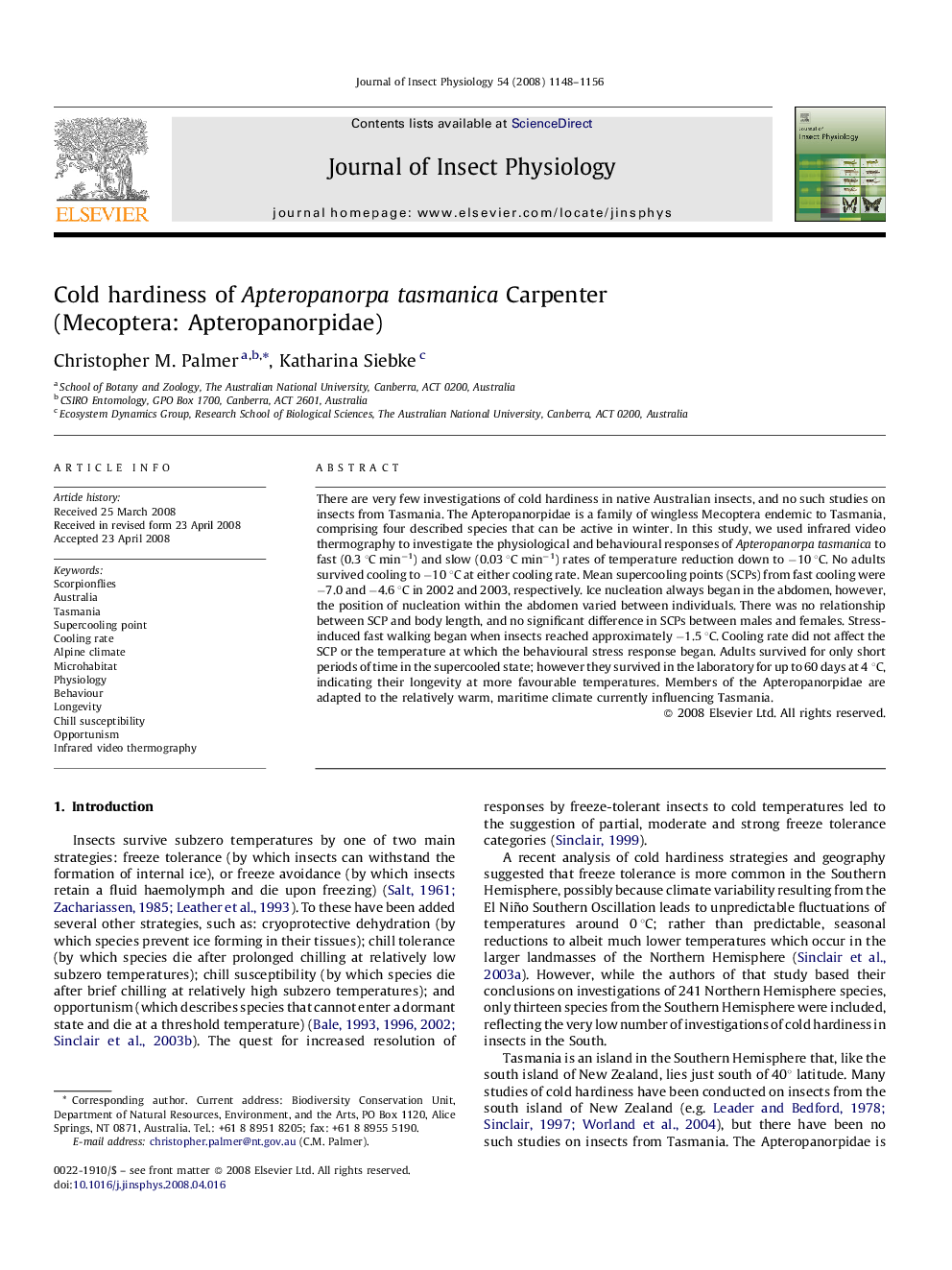| Article ID | Journal | Published Year | Pages | File Type |
|---|---|---|---|---|
| 2841312 | Journal of Insect Physiology | 2008 | 9 Pages |
There are very few investigations of cold hardiness in native Australian insects, and no such studies on insects from Tasmania. The Apteropanorpidae is a family of wingless Mecoptera endemic to Tasmania, comprising four described species that can be active in winter. In this study, we used infrared video thermography to investigate the physiological and behavioural responses of Apteropanorpa tasmanica to fast (0.3 °C min−1) and slow (0.03 °C min−1) rates of temperature reduction down to −10 °C. No adults survived cooling to −10 °C at either cooling rate. Mean supercooling points (SCPs) from fast cooling were −7.0 and −4.6 °C in 2002 and 2003, respectively. Ice nucleation always began in the abdomen, however, the position of nucleation within the abdomen varied between individuals. There was no relationship between SCP and body length, and no significant difference in SCPs between males and females. Stress-induced fast walking began when insects reached approximately −1.5 °C. Cooling rate did not affect the SCP or the temperature at which the behavioural stress response began. Adults survived for only short periods of time in the supercooled state; however they survived in the laboratory for up to 60 days at 4 °C, indicating their longevity at more favourable temperatures. Members of the Apteropanorpidae are adapted to the relatively warm, maritime climate currently influencing Tasmania.
